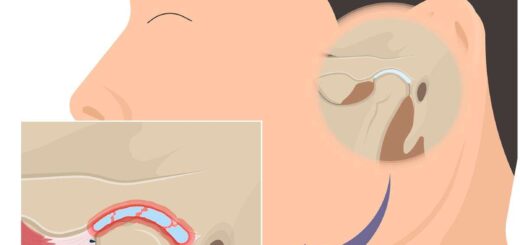How does untreated sleep apnea affect overall health?

The World Health Organization (WHO) categorizes sleep apnea as a chronic respiratory disorder. This is a condition in which your breathing repeatedly starts and stops while you sleep.
There are cases where the person wakes up gasping for air.
Based on the cause of the problem, this disease can be either:
- Obstructive sleep apnea (OSA)
- Centralized sleep apnea (CSA)
Not only does this disease cause you to lose productivity, but it also affects several health functions. Let us discuss the physical and mental disruptions caused by sleep apnea.
Effects of Untreated Sleep Apnea on Physical Health
Sleep apnea, if left untreated, can result in a heap of physical complications, as discussed below:
Excessive daytime sleepiness
This is a common symptom of several sleep disorders. As the name suggests, it causes you to feel drowsy and sleepy during the day. If you are suffering from sleep apnea, excessive sleepiness develops due to frequent sleep interruptions. As a result, you find it difficult to remain awake throughout working hours. You are constantly exhausted, drowsy and lack energy.
Cardiovascular complications
Sleep apnea results in low oxygen levels due to regular breathing disruptions. These can have some severe consequences, which, in some cases, can be fatal. Due to low oxygen levels, the blood pressure increases (hypertension) and this puts strain on the heart. This condition also worsens and results in adult asthama, heart attacks, irregular heartbeats and strokes. It can also cause chronic obstructive pulmonary disease (COPD). In cardiac patients, low blood oxygen, i.e., hypoxemia, causes sudden disruption of the heartbeat and can lead to death.
Predisposition to medical conditions
People suffering from sleep apnea are more likely to develop type II diabetes. This is because it increases insulin resistance in your body. It is also found that this disorder increases the chances of liver scarring or nonalcoholic fatty liver disease. Furthermore, the risk of abnormal cholesterol and obesity is also increased due to this disease.
Reduced sexual drive
Your sexual drive may go down due to constant disturbances while sleeping. Moreover, it is also found that men suffering from sleep apnea are more likely to develop erectile dysfunction.
Implications of Sleep Apnea on Mental Health
Sleep apnea is related to two neurotransmitters, gamma-aminobutyric acid (GABA) and glutamate. GABA is responsible for the calming effect, lowers anxiety and also controls sleep. Alternatively, glutamate is responsible for producing an excitory effect, learning, memory, sleep, and pain responses. If there is a disturbance in the levels of these neurotransmitters, it can lead to several neurological problems.
Mental health issues linked to sleep apnea include:
- Depression
- Suicidal ideation
- Anxiety
- Psychological distress
- Schizophrenia
Strategies to Manage Sleep Apnea and Improve Overall Health
Treatment of sleep apnea includes treatment of the underlying cause. A lot of factors can cause this disease, such as obesity, neural disruption, respiratory diseases, etc. Treatment for these conditions, along with supportive steps, can provide better alleviation.
Excessive sleepiness is one of the symptoms that troubles adults as well as children. To ease this symptom, doctors generally prescribe modafinil and armodafinil. These are prescription medicines that promote wakefulness and regulate the sleep cycle.
In this article, we discussed the physical and mental implications of sleep apnea. They not only have an impact on key bodily systems, but if left untreated, they can even lead to death. It is important to seek medical attention as soon as possible if you suspect sleep apnea.












